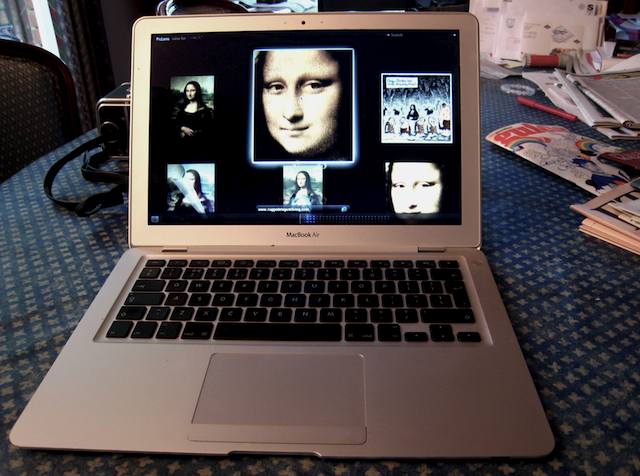From his NYT column…
On one side stands Mr. Obama’s resolutely cheerful embrace of the future. His vision is inseparable from his identity, both as a rookie with a slim Washington résumé and as a black American whose triumph was regarded as improbable by voters of all races only months ago. On the other is John McCain’s promise of a wise warrior’s vigilant conservation of the past. His vision, too, is inseparable from his identity — as a government lifer who has spent his entire career in service, whether in the Navy or Washington.
Given the dividing line separating the two Americas of 2008, a ticket uniting Mr. McCain and Hillary Clinton might actually be a better fit than the Obama-Clinton “dream ticket,” despite their differences on the issues. Never was this more evident than Tuesday night, when Mrs. Clinton and Mr. McCain both completely misread a one-of-a-kind historical moment as they tried to cling to the prerogatives of the 20th century’s old guard…
He’s very good on McCain:
Mr. McCain’s speech in a New Orleans suburb on Tuesday night spawned a cottage industry of ridicule, even among Republicans. The halting delivery, sickly green backdrop and spastic, inappropriate smiles, presumably mandated by some consultant hoping to mask his anger, left the impression that Mr. McCain isn’t yet ready for prime-time radio.
But the substance was even worse than the theatrics. Incredibly, Mr. McCain attacked Mr. Obama for being insufficiently bipartisan while speaking to the most conspicuously partisan audience you can assemble in today’s America: a small, nearly all-white crowd that seconded his attack lines with boorish choruses of boos. On TV, the audience came across as a country-club membership riled by a change in the Sunday brunch menu.
I like his idea that the real ‘dream ticket’ would be McCain+Clinton. And his analysis of their websites:
You could learn a ton about the Clinton campaign’s cultural tone-deafness from its stodgy generic Web site. A similar torpor afflicts JohnMcCain.com, which last week gave its graphics a face-lift that unabashedly mimics BarackObama.com and devoted prime home page real estate to hawking “McCain Golf Gear.” (No joke.) The blogs, video and social networking are static and sparse, the apt reflection of a candidate who repeatedly invokes “I” as he boasts of his humility.
Thanks to Dave Winer for the tweet.
Later: Charlie Leadbeater pointed me to Noam Cohen’s NYT piece about Obama’s campaign, in which he observes, en passant,
Yochai Benkler, a Harvard law professor whose book “The Wealth of Networks” is a manifesto for online collaboration, points out a crucial difference between Mr. Obama’s approach to attracting supporters and that of his chief rivals. “On the McCain and Clinton Web sites, there is a transactional screen,” Mr. Benkler said. “It is just about the money. Donate, then we can build the relationship. In Obama’s it’s inverted: build the relationship and then donate.”


